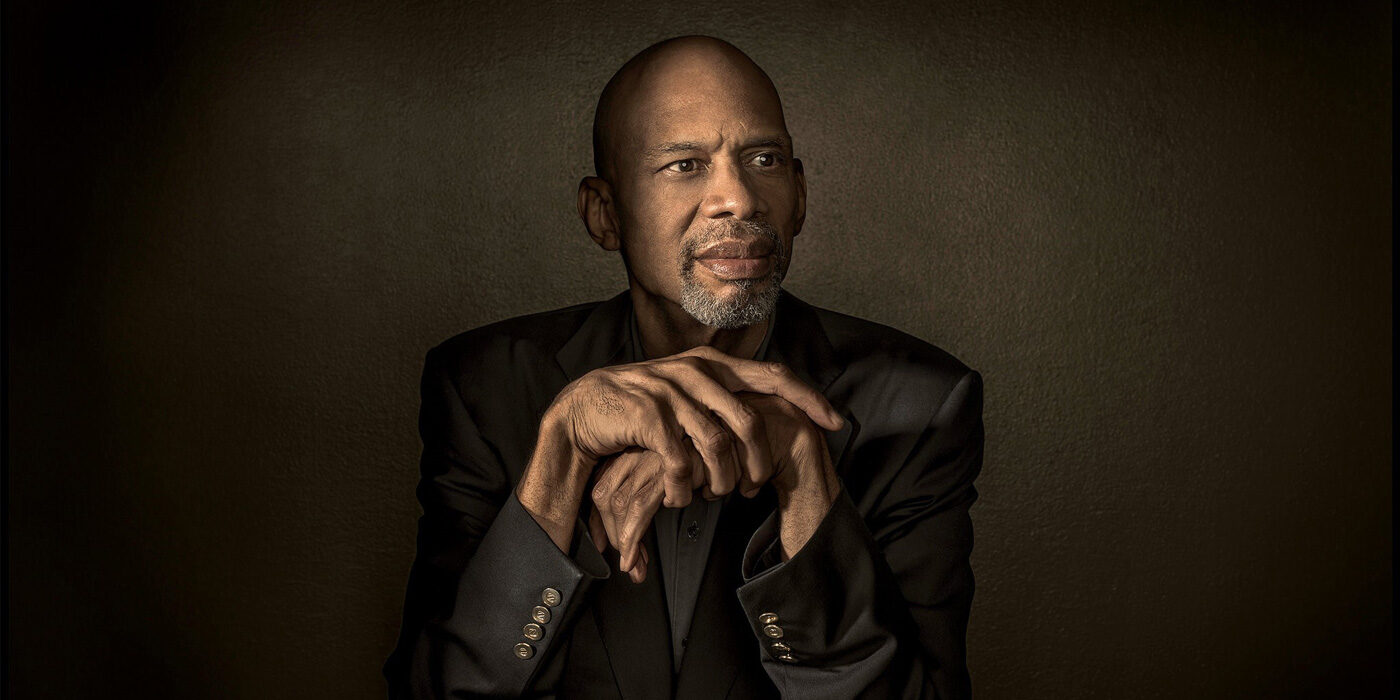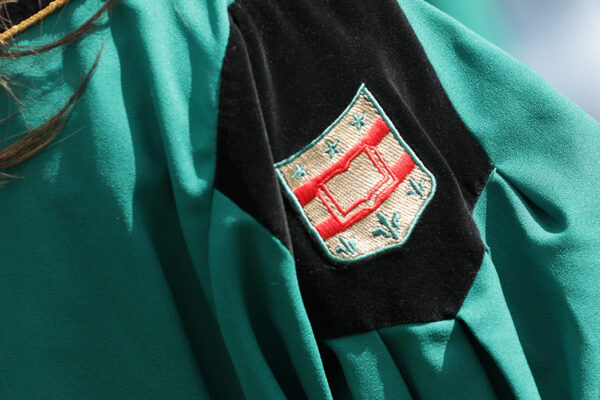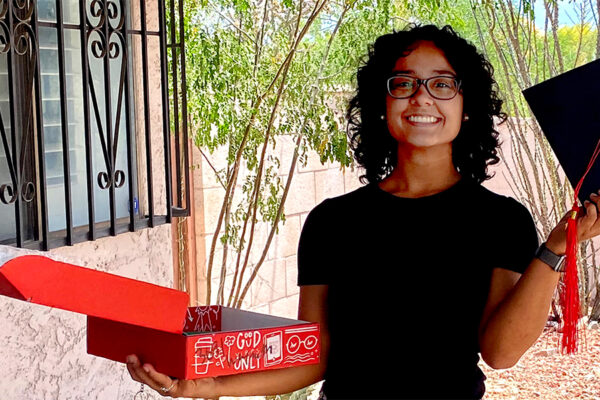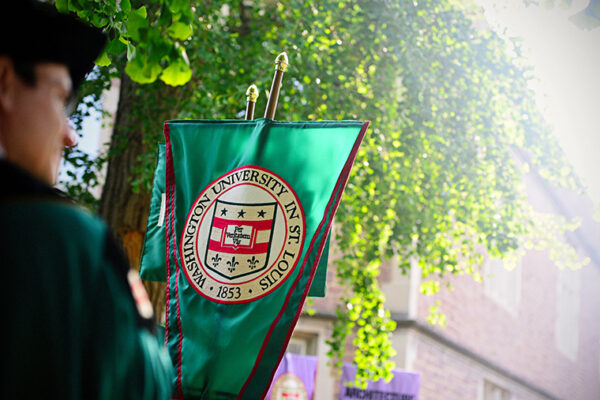NBA great and social justice advocate Kareem Abdul-Jabbar will deliver the 2021 Commencement address for Washington University in St. Louis, Chancellor Andrew D. Martin announced in a video message to members of the class.
With guidance and approval from St. Louis regional health authorities, the university plans to hold in-person Commencement ceremonies for the Class of 2021 on May 20 and 21 on the Danforth Campus.
Due to limitations on gatherings and crowd sizes due to COVID-19, however, the university will host multiple, smaller ceremonies on Francis Olympic Field in place of the traditional universitywide Commencement ceremony in Brookings Quadrangle. There will be a maximum of 500 graduates at each in-person ceremony, with two guests allowed per graduate.
Abdul-Jabbar’s address to the Class of 2021, which will be video recorded in advance to accommodate the multiple ceremonies, will be shown on large screens on Francis Field for those who are attending in person and livestreamed to graduates who are studying remotely during the spring. The university is expecting to host eight ceremonies.
“I am thrilled that Kareem Abdul-Jabbar, an inspiration both on and off the basketball court — since before and long after his phenomenal athletic career — will be addressing our graduates,” Martin said.
“A Presidential Medal of Freedom recipient and a prolific author, in addition to being the highest-scoring NBA player of all time, Mr. Abdul-Jabbar has used his platform to address racial justice and social equity issues everywhere,” Martin said. “He has demonstrated his commitment to improving others’ lives not just through his influential words, but through such actions as establishing a foundation that works with underserved communities, helping kids reach their full potential.
“He achieved greatness in his chosen career, but he didn’t stop there,” Martin said. “He is a force for good and a wonderful example for our graduating students, who I’m sure will find his message uplifting.”
The university will award Abdul-Jabbar an honorary doctor of humanities degree during its 160th Commencement.
About Kareem Abdul-Jabbar
Considered by many to be the greatest basketball player of all time, Abdul-Jabbar is also a humanitarian, an author and an advocate for racial justice.
The 7-foot-2 Hall of Famer is famous for his trademark skyhook shot and dominating the NBA for 20 years with the Milwaukee Bucks and the Los Angeles Lakers. He was a record six-time NBA Most Valuable Player, a record 19-time NBA All-Star and a member of six NBA championship teams.
He remains the NBA’s all-time leading scorer with 38,387 points, as well as its all-time leader in career victories as a player.
But as Abdul-Jabbar has said about himself, “I can do more than stuff a ball through a hoop; my greatest asset is my mind.” He has used it often for the greater good.
He has been an activist since just after graduating high school in New York, when he had an opportunity to ask Martin Luther King Jr. a question during a news conference. From that brief interaction with the civil rights leader, Abdul-Jabbar was inspired and has spent his life fighting against injustices like systemic racism and health, educational and employment disparities.
Abdul-Jabbar founded and has served since 2009 as chairman of The Skyhook Foundation, whose mission is to “give kids a shot that can’t be blocked” by bringing STEM (science, technology, engineering and mathematics) opportunities to underserved Los Angeles communities.
Camp Skyhook, the foundation’s flagship program, is an immersive experience in which middle schoolers from racially, culturally and socioeconomically diverse neighborhoods receive hands-on STEM learning outside their urban environment.
In 2016, President Barack Obama awarded Abdul-Jabbar the Presidential Medal of Freedom, the nation’s highest civilian honor. His other awards include the Cold Spring Harbor Laboratory’s prestigious Double Helix Medal for his work in raising awareness for cancer research and the Lincoln Medal for his commitment to education and equality.
From UCLA to the pros
A native of Harlem, Abdul-Jabbar earned a bachelor’s degree in history in 1969 from the University of California, Los Angeles. He played on UCLA’s basketball team under Coach John Wooden from 1967-69, winning three consecutive NCAA championships.
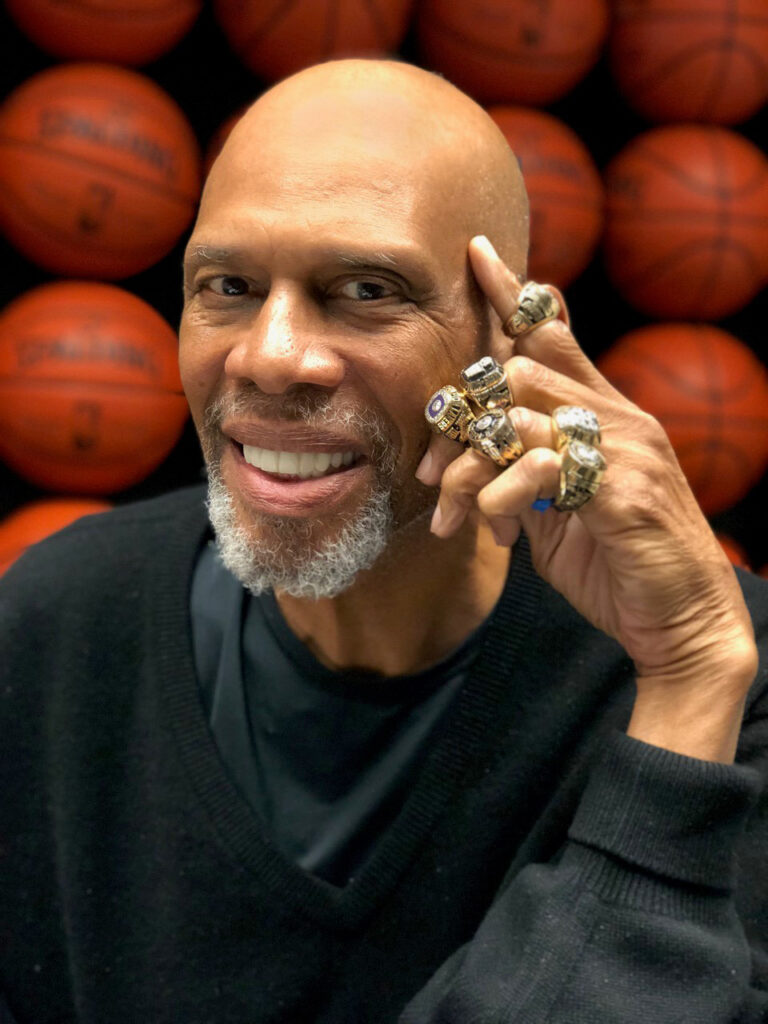
In April 1969, the Bucks selected him No. 1 overall pick in the NBA draft and he played center for Milwaukee from 1969-1975. He led the Bucks to the NBA championship in 1971. He was traded to the Lakers in 1975 and played on five more championship teams until his retirement at age 42 in 1989.
A decade after retiring as a player, Abdul-Jabbar returned to the sport as a volunteer assistant coach for one season of the Alchesay High School basketball team on the Fort Apache Indian Reservation in Whiteriver, Arizona. In an interview with the Arizona Daily Star about why he would take on such a position, the father of five said he was answering a nationwide call from retired Gen. Colin Powell for people to help their neighbors.
He further explained, “The neighborhood I was from was not a lot different from the reservation. Barrios. Ghettos. There were not good opportunities,” he said. “I want to get these kids thinking about college. If they have the talent to go on to play in college … I am walking proof that it can be done.” In 2000, he wrote a book about the experience, “A Season on the Reservation: My Sojourn With the White Mountain Apaches.”
A New York Times bestselling author, he has written 15 other books, including two memoirs: “Becoming Kareem” for young readers and “Coach Wooden and Me” about his 50-year friendship with the famed UCLA coach. He received the 2012 NAACP award for his children’s book “What Color is My World? The Lost History of African-American Inventors.” Also in 2012, Secretary of State Hillary Clinton named him a U.S. cultural ambassador to promote the importance of education, social and racial tolerance, and cultural understanding around the world.
After 50 years as an athlete and activist, he offers his perspectives as a nationally recognized speaker who regularly appears on the lecture circuit. A contributing columnist for newspapers and magazines around the world, he has been named Columnist of the Year at the Southern California Journalism Awards for the past five years.
Among his work in television, he was the focus of an HBO Sports documentary, “Kareem: Minority of One” in 2015, and a writer on Season 5 of Hulu’s “Veronica Mars.” He is producing a documentary for History, titled “Fight the Power: The Protests That Changed America.”
